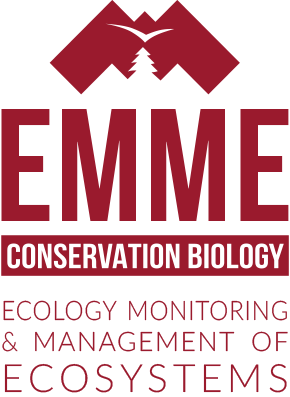From the start of the 2024-2025 academic year, the Master’s programme structures its teaching and assessments around the validation of 3 major competences corresponding to the expectations of the professional world targeted by the course (consultancies, local authorities, the voluntary sector, government agencies, research, etc.):
- Integrating fundamental knowledge of ecology and conservation
- Managing a project in ecology and conservation and communicating results
- Acquire and analyse data on biodiversity and ecosystem functioning
Competences are understood as a complex knowledge-action that requires the combination of several resources (know-how, theoretical knowledge, databases, literature, technical tools, etc.) in different professional situations. These skills will be assessed gradually over the two years of the Master’s programme, through both specific assessments (knowledge tests, etc.) and Learning and Assessment Situations (LAS: internships at the end of the year – 2 to 3 months in M1 and 4 to 6 months in M2 – and group tutored projects) in which the student will have to produce a piece of work corresponding to a well-defined professional situation and requiring autonomy, reflection and the mobilisation of various skills.
The Master’s degree will be awarded once all the skills have been validated.
The courses relating to these competences are distributed throughout the Master’s programme according to the table below.
| ECTS | ||||||
| Competences | Content | S1 | S2 | S3 | S4 | Total |
| Integrating fundamental knowledge of ecology and conservation | Population and community ecology Conservation biology Two options among: wildlife and health, ecotoxicology, palaeoecology, conservation biology |
5 | 9 | 0 | 0 | 14 |
| Managing a project in ecology and conservation and communicating results | Project management tools Responding to calls for proposals Scientific discussion Environmental law |
10 | 4 | 9 | 0 | 23 |
| Acquire and analyse data on biodiversity and ecosystem functioning | GIS and cartography Concepts and tools for monitoring biodiversity Data management Advanced modelling (time series analysis, non-linear modelling, spatial statistics, etc.) |
9 | 4 | 15 | 0 | 28 |
| Learning and assessment situations | Internships Tutored projects Professional project |
6 | 13 | 6 | 30 | 55 |
| Total | 30 | 30 | 30 | 30 | 120 | |





